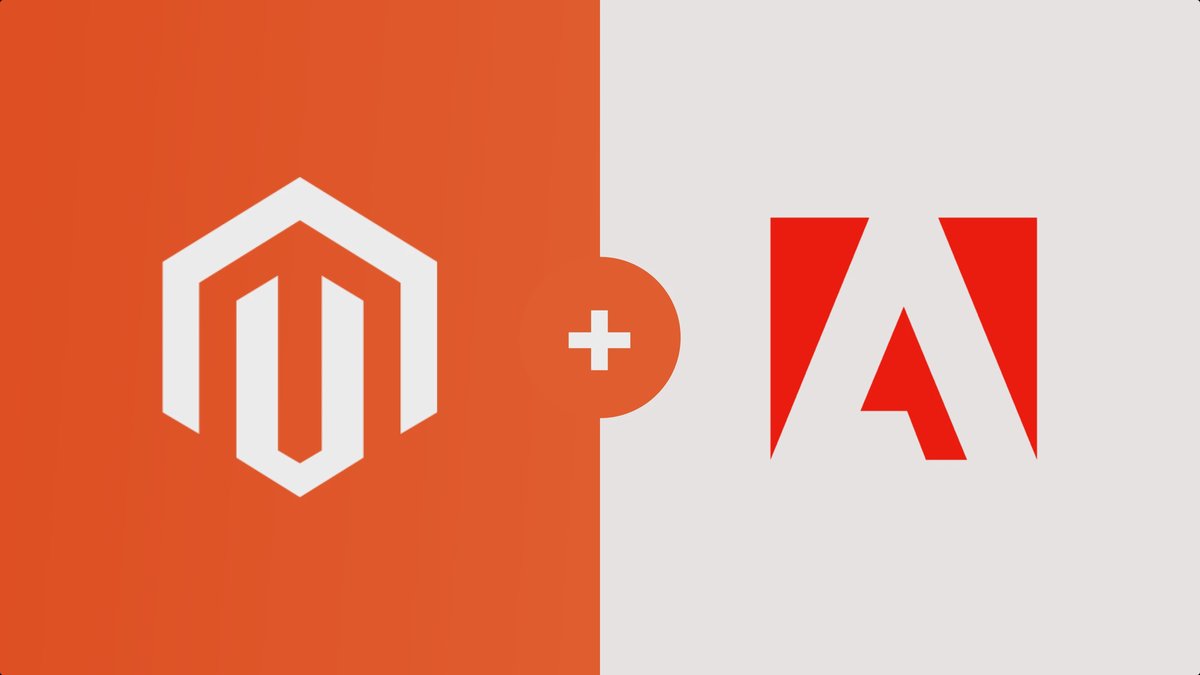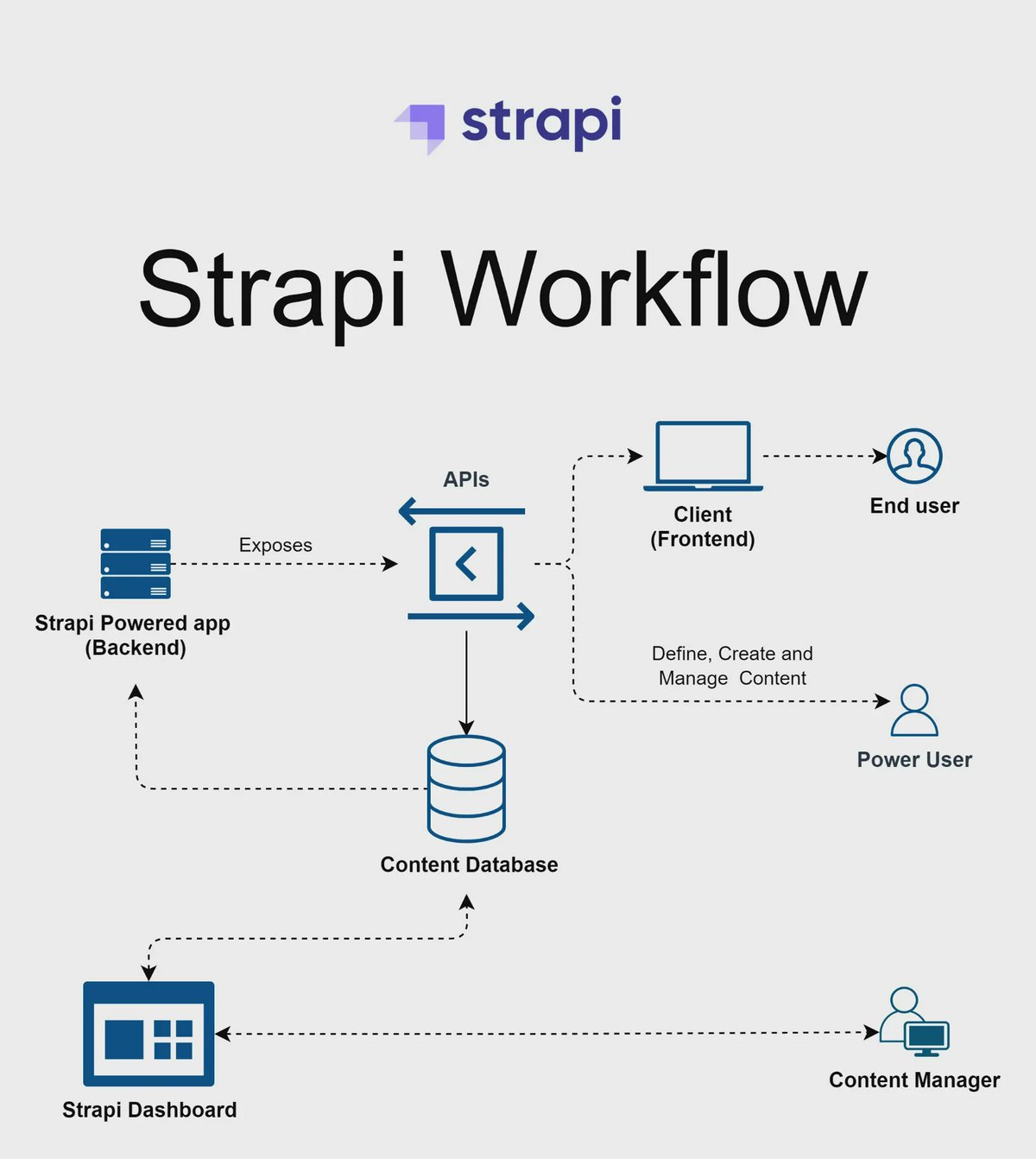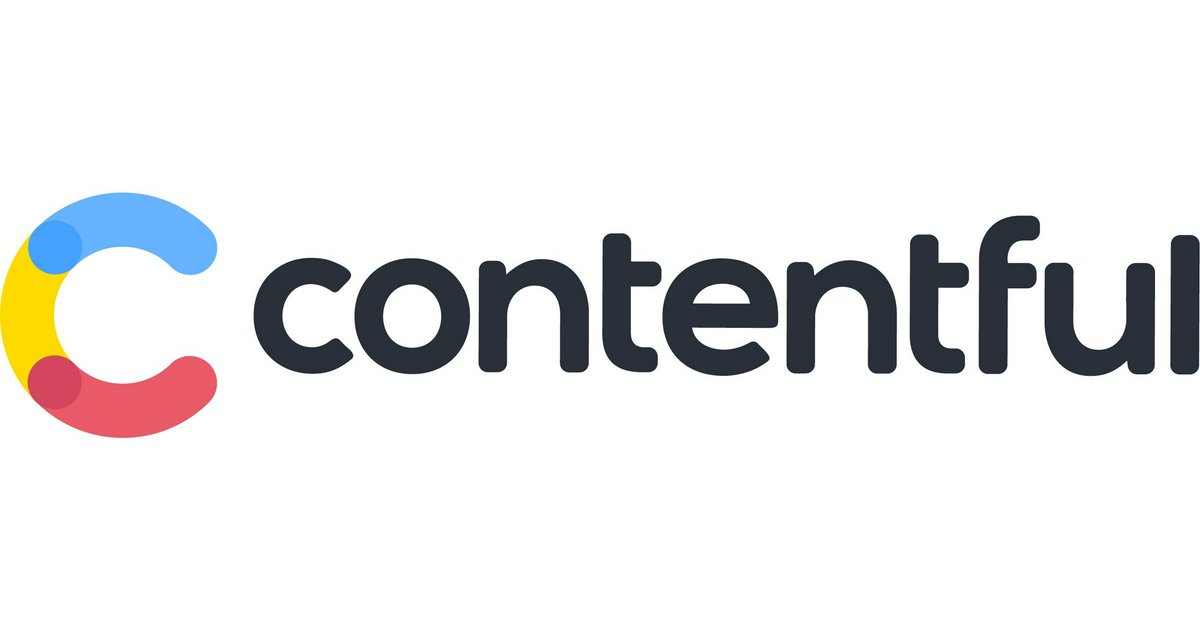Top Content Management Systems Compared
By Lucy Chen | Published: 2025-02-23 | Category: Content Management System Software
About Content Management System Software
Content Management System (CMS) software enables users to create, manage, modify, and publish digital content, typically for websites, without needing deep technical expertise. It provides a collaborative environment for managing website assets and workflows.
Scoring Criteria
- → Ease of Use
- → Customizability
- → Feature Set
- → Performance
- → Scalability
- → Support & Community
- → Pricing Value
The Best Content Management System Software
 #10
#10
Adobe Commerce (Magento)
By Adobe
A powerful, enterprise-level e-commerce platform offering extensive customization and scalability for large online stores.
Platforms & Use Cases
Platforms: Web, Self-hosted (Magento Open Source), Cloud (Adobe Commerce)
Best For: Large Scale E-commerce, B2B Commerce, Multi-store Retail, Complex Product Catalogs, International Sales
Key Features
- ✓E-commerce Functionality: Highly comprehensive features for products, inventory, checkout, marketing. (Extensive)
- ✓Customization: Extremely flexible architecture allowing deep customization. (Very High)
- ✓Scalability: Designed to handle large product catalogs and high traffic volumes. (Enterprise-grade)
- ✓Marketplace: Large ecosystem of extensions for adding functionality. (Vast)
Scorecard (Overall: 7.9 / 10.0)
Pricing
Magento Open Source
Contact Vendor
- Core E-commerce Platform
- Community Support
- Full Customization
Limitations: Requires hosting, development expertise, lacks features of Commerce edition
Adobe Commerce (Cloud)
$-1.00 / annually
- Managed Cloud Hosting
- B2B Functionality
- Advanced Marketing Tools
- Business Intelligence
- Enterprise Support
- Performance Tools
Limitations: Expensive, complex, requires significant investment and expertise. Pricing based on GMV.
Pros
- + Incredibly powerful and feature-rich e-commerce platform
- + Highly scalable for large businesses
- + Extremely customizable
- + Large extension marketplace
- + Strong B2B capabilities (Adobe Commerce)
Cons
- - Very complex with a steep learning curve
- - Requires significant development resources
- - Can be resource-intensive and require robust hosting
- - Adobe Commerce version is very expensive
- - Open Source version lacks key enterprise features
Verdict
"An enterprise-grade e-commerce powerhouse best suited for large, established businesses with complex requirements and the technical resources to manage its complexity and cost."
 #9
#9
Ghost
By Ghost Foundation
An open-source publishing platform focused on professional blogging, newsletters, and memberships.
Platforms & Use Cases
Platforms: Web, Self-hosted, Cloud (Ghost(Pro))
Best For: Professional Blogging, Online Magazines, Newsletters, Membership Sites, Creator Economy Platforms
Key Features
- ✓Modern Editor: Clean, distraction-free writing interface. (Excellent)
- ✓Membership & Subscriptions: Built-in tools for managing paid content and members. (Native)
- ✓Email Newsletters: Integrated newsletter delivery to subscribers. (Built-in)
- ✓SEO Optimized: Built-in SEO features and clean code structure. (Strong)
Scorecard (Overall: 7.6 / 10.0)
Pricing
Self-Hosted
Contact Vendor
- Core Software
- Full Customization
Limitations: Requires hosting, setup, email integration (e.g., Mailgun)
Starter (Ghost(Pro))
$9.00 / monthly (paid annually)
- Managed Hosting
- Up to 500 Members
- Official Themes
- Standard CDN
Limitations: Ghost.org subdomain option, Member limits
Creator (Ghost(Pro))
$25.00 / monthly (paid annually)
- Custom Domain
- Up to 1,000 Members
- Custom Themes
- Priority Support
Limitations: Member limits
Pros
- + Excellent writing and publishing experience
- + Built-in membership and newsletter features
- + Fast performance
- + Clean design and SEO focus
- + Open-source option available
Cons
- - Less flexible than general-purpose CMS like WordPress
- - Primarily focused on publishing, less on complex site structures
- - Limited app/plugin ecosystem
- - Self-hosting requires technical setup
Verdict
"A superb choice for writers, publishers, and creators focused on content, newsletters, and memberships, offering a streamlined and performant platform."
 #8
#8
Strapi
By Strapi Solutions
A popular open-source headless CMS giving developers freedom to choose their frontend tools and frameworks.
Platforms & Use Cases
Platforms: Web, Self-hosted, Cloud (SaaS option)
Best For: Headless Websites, Mobile App Backends, APIs for JAMstack sites, Custom Web Applications
Key Features
- ✓API Generation: Automatically generates RESTful or GraphQL APIs based on content types. (Automated)
- ✓Customizable: Open-source nature allows deep customization of admin panel and APIs. (Highly Flexible)
- ✓Plugin System: Extend functionality with community or custom plugins. (Extensible)
- ✓Database Choice: Supports multiple databases like PostgreSQL, MySQL, SQLite, MariaDB. (Flexible)
Scorecard (Overall: 8.3 / 10.0)
Pricing
Community (Self-Hosted)
Contact Vendor
- Core CMS
- Unlimited Content Types
- REST & GraphQL APIs
- Customizable Admin Panel
Limitations: Requires self-hosting and maintenance
Strapi Cloud Bronze
$99.00 / monthly
- Managed Hosting
- 3 Bronze Projects
- Automated Backups
- Basic Support
Limitations: Resource limits per project
Enterprise (Self-Hosted or Cloud)
$-1.00 / annually
- Advanced RBAC
- SSO
- Audit Logs
- Dedicated Support
- SLA
Limitations: Contact Sales for quote
Pros
- + Highly customizable open-source platform
- + Developer-friendly
- + Good API generation capabilities
- + Flexible hosting options (self-hosted or cloud)
- + Growing community
Cons
- - Requires frontend development
- - Steeper learning curve than traditional CMS
- - Cloud hosting costs can increase
- - Advanced features require Enterprise plan
Verdict
"A powerful and flexible open-source headless CMS, great for developers wanting control over their stack and API infrastructure, offering both self-hosted and managed cloud options."
 #7
#7
Contentful
By Contentful GmbH
A leading headless CMS platform focused on providing content infrastructure via APIs for omnichannel delivery.
Platforms & Use Cases
Platforms: Web (SaaS - API-driven)
Best For: Headless Websites, Mobile Applications, Digital Signage, IoT Devices, Omnichannel Content Delivery
Key Features
- ✓API-First: Content delivered via RESTful and GraphQL APIs for use on any frontend. (Core)
- ✓Content Modeling: Flexible definition of content structures (content types). (Structured)
- ✓Developer Tools: SDKs, documentation, and tools for developers. (Comprehensive)
- ✓App Framework: Extend the editor interface with custom applications. (Extensible)
Scorecard (Overall: 8.1 / 10.0)
Pricing
Community
Contact Vendor
- 5 Users
- 2 Environments
- GraphQL API
- Content Delivery API
Limitations: Usage limits apply
Team
$489.00 / monthly
- Increased limits
- Technical Support
- Multiple Roles
- Webhooks
Limitations: Per-user pricing model
Enterprise
$-1.00 / annually
- Custom limits
- Dedicated Support
- Advanced Security
- SLA
Limitations: Contact Sales for quote
Pros
- + Excellent for omnichannel content delivery
- + Highly scalable and performant
- + Flexible content modeling
- + Developer-friendly API and tools
- + Separation of content and presentation
Cons
- - Requires separate frontend development
- - Can be expensive for larger teams/usage
- - Less suitable for simple websites without development resources
- - Not an all-in-one website builder
Verdict
"A premier headless CMS for organizations needing to manage content centrally and deliver it across multiple platforms via APIs, ideal for teams with frontend development capabilities."
 #6
#6
Joomla
By Open Source Matters, Inc. & Community
An open-source CMS offering a balance between the ease of use of WordPress and the power of Drupal.
Platforms & Use Cases
Platforms: Web, Self-hosted
Best For: Community Sites, Membership Sites, Business Websites, Non-profit Organizations, Multilingual Portals
Key Features
- ✓Access Control List (ACL): Advanced user management and permissions. (Granular)
- ✓Multilingual Support: Strong built-in multilingual capabilities. (Native)
- ✓Extensibility: Good selection of extensions and templates available. (Moderate)
- ✓Content Flexibility: Supports custom post types and flexible content display. (Good)
Scorecard (Overall: 7.6 / 10.0)
Pricing
Self-Hosted
Contact Vendor
- Core CMS Software
- Full Customization
- Extension Access
- Template Access
Limitations: Requires hosting, domain purchase, moderate technical knowledge
Pros
- + More built-in features than WordPress out-of-the-box
- + Powerful user access controls
- + Good multilingual support
- + Relatively flexible and customizable
Cons
- - Interface can be less intuitive than WordPress or SaaS builders
- - Smaller community and extension library than WordPress
- - Steeper learning curve than basic builders
- - Requires hosting management
Verdict
"A capable open-source CMS that sits between WordPress and Drupal in complexity, suitable for sites needing advanced user management or multilingual features without Drupal's steep learning curve."
 #5
#5
Drupal
By Drupal Community
A powerful and flexible open-source CMS known for its robust security, scalability, and advanced customization capabilities.
Platforms & Use Cases
Platforms: Web, Self-hosted
Best For: Enterprise Websites, Government Sites, Higher Education Portals, Complex Web Applications, Community Platforms
Key Features
- ✓Taxonomy System: Advanced content organization and categorization capabilities. (Powerful)
- ✓Security: Strong focus on security, making it popular for sensitive applications. (Enterprise-grade)
- ✓Custom Content Types: Highly flexible definition of custom data structures. (Very Flexible)
- ✓Multilingual Support: Excellent built-in capabilities for multilingual websites. (Native)
Scorecard (Overall: 8.4 / 10.0)
Pricing
Self-Hosted
Contact Vendor
- Core CMS Software
- Full Customization
- Module Access
- Theme Access
Limitations: Requires hosting, domain purchase, significant technical expertise
Pros
- + Highly scalable and performant
- + Excellent security record
- + Extremely flexible and customizable
- + Powerful content modeling capabilities
- + Strong multilingual features
Cons
- - Steep learning curve, requires developer expertise
- - Less user-friendly interface compared to others
- - Smaller theme/module ecosystem than WordPress
- - Development and maintenance costs can be high
Verdict
"A top choice for complex, large-scale websites and applications requiring high security and custom functionality, best suited for organizations with development resources."
 #4
#4
Squarespace
By Squarespace, Inc.
A SaaS website builder and hosting platform known for its award-winning design templates and integrated marketing tools.
Platforms & Use Cases
Platforms: Web (SaaS)
Best For: Portfolios, Creative Businesses, Small Online Stores, Blogging, Restaurant Websites
Key Features
- ✓Design Templates: High-quality, visually focused templates. (Premium)
- ✓Integrated Tools: Built-in features for SEO, marketing, analytics, and e-commerce. (Comprehensive)
- ✓Ease of Use: Structured editor that is relatively easy to learn. (Good)
- ✓All-in-One Platform: Includes hosting, security, and updates. (Managed)
Scorecard (Overall: 7.6 / 10.0)
Pricing
Personal
$16.00 / monthly (paid annually)
- Custom Domain
- SSL Security
- Unlimited Bandwidth/Storage
- Basic SEO
Limitations: No E-commerce
Business
$23.00 / monthly (paid annually)
- Includes Personal features
- Basic E-commerce (3% transaction fee)
- Premium Integrations
- Advanced Analytics
Limitations: Transaction fees
Commerce Basic
$27.00 / monthly (paid annually)
- Includes Business features
- 0% Transaction Fee E-commerce
- Customer Accounts
- POS App
Pros
- + Beautiful template designs
- + Good integrated feature set
- + Relatively easy to use
- + Reliable all-in-one platform
- + Strong for visual portfolios and blogs
Cons
- - Less flexible customization than open-source CMS
- - Editor can feel restrictive at times
- - E-commerce less powerful than Shopify
- - No free plan (only trial)
Verdict
"Ideal for creatives and businesses prioritizing design aesthetics and ease of use, offering a polished all-in-one solution with good built-in tools."
 #3
#3
Wix
By Wix.com Ltd.
A cloud-based website builder known for its intuitive drag-and-drop interface and designer-made templates.
Platforms & Use Cases
Platforms: Web (SaaS)
Best For: Small Business Websites, Portfolios, Online Stores (Basic), Event Sites, Blogs
Key Features
- ✓Drag-and-Drop Editor: Highly visual and intuitive site building experience. (User-friendly)
- ✓Template Library: Hundreds of professionally designed templates for various industries. (Extensive)
- ✓App Market: Adds features like booking systems, forms, and marketing tools. (Growing)
- ✓Wix ADI: Artificial Design Intelligence creates a website based on user input. (Automated)
Scorecard (Overall: 7.3 / 10.0)
Pricing
Free
Contact Vendor
- Wix Subdomain
- Wix Ads
- Limited Storage/Bandwidth
Limitations: Not suitable for professional use
Combo
$16.00 / monthly
- Connect Domain
- Remove Wix Ads
- Custom Domain
- SSL Certificate
Limitations: Limited storage
Business Basic
$27.00 / monthly
- Accept Online Payments
- Unlimited Products
- Customer Accounts
Limitations: Basic e-commerce features
Pros
- + Extremely easy to use, great for beginners
- + Visually appealing templates
- + All-in-one hosted solution
- + Good app market for extending functionality
Cons
- - Limited customization beyond template structure
- - Cannot switch templates once site is live
- - Not easily transferable to other platforms
- - E-commerce features less robust than dedicated platforms
- - Can be slow for complex sites
Verdict
"An excellent choice for beginners and small businesses needing a visually appealing website quickly with minimal technical skill, but less flexible for complex needs."
 #2
#2
Shopify
By Shopify Inc.
A leading SaaS e-commerce platform designed for building and scaling online stores with integrated tools.
Platforms & Use Cases
Platforms: Web (SaaS)
Best For: Online Stores, Retail Point-of-Sale, Multi-channel Selling, Dropshipping
Key Features
- ✓E-commerce Engine: Comprehensive tools for product management, checkout, payments, and shipping. (Robust)
- ✓App Store: Extensive marketplace for apps to add functionality. (Large)
- ✓Hosted Solution: Fully hosted, secure, and managed platform. (Managed)
- ✓Sales Channels: Integration with social media, marketplaces, and physical POS. (Multi-channel)
Scorecard (Overall: 8.4 / 10.0)
Pricing
Basic
$29.00 / monthly
- Online Store
- Unlimited Products
- 2 Staff Accounts
- Basic Reports
Limitations: Higher transaction fees
Shopify
$79.00 / monthly
- Includes Basic features
- 5 Staff Accounts
- Professional Reports
- Lower transaction fees
Advanced
$299.00 / monthly
- Includes Shopify features
- 15 Staff Accounts
- Advanced Report Builder
- Lowest transaction fees
Pros
- + Excellent ease of use for e-commerce
- + Scalable infrastructure
- + Integrated payment processing
- + Good selection of themes and apps
- + Reliable hosting and security included
Cons
- - Transaction fees apply unless using Shopify Payments
- - Customization can be limited compared to open-source
- - App costs can add up
- - Less ideal for content-heavy, non-e-commerce sites
Verdict
"The go-to platform for businesses focused primarily on e-commerce, offering a powerful, scalable, and user-friendly solution."
View Top Ranked Software
Watch a short ad to unlock the details for the #1 ranked software.
 #1
#1
WordPress.org
By Automattic & Community
A highly popular, open-source CMS known for its flexibility, extensive plugin ecosystem, and large community support.
Platforms & Use Cases
Platforms: Web, Self-hosted
Best For: Blogging, Business Websites, E-commerce (with plugins), Portfolios, Membership Sites
Key Features
- ✓Extensibility: Massive library of themes and plugins for customization. (High)
- ✓Content Editor: Block-based editor (Gutenberg) for flexible content creation. (Modern)
- ✓SEO Tools: Strong SEO capabilities, often enhanced by plugins. (Excellent)
- ✓User Management: Robust roles and permissions system. (Comprehensive)
Scorecard (Overall: 8.9 / 10.0)
Pricing
Self-Hosted
Contact Vendor
- Core CMS Software
- Full Customization
- Plugin Access
- Theme Access
Limitations: Requires hosting, domain purchase, self-maintenance
Pros
- + Highly flexible and customizable
- + Vast plugin and theme ecosystem
- + Large active community
- + Free open-source software
- + Good for SEO
Cons
- - Requires separate hosting and maintenance
- - Can have a learning curve for deep customization
- - Performance optimization needed for complex sites
- - Security requires user vigilance
Verdict
"The most versatile open-source CMS, ideal for users wanting full control and extensive customization options, provided they handle hosting and maintenance."

Final Thoughts
The CMS market offers diverse solutions, from user-friendly SaaS builders like Wix and Squarespace, to the dominant open-source flexibility of WordPress, powerful e-commerce platforms like Shopify and Adobe Commerce, and API-driven headless options like Contentful and Strapi. The best choice depends heavily on technical expertise, budget, scalability needs, and primary use case (e.g., blogging, e-commerce, complex applications). Open-source options offer maximum control but require more maintenance, while SaaS provides ease of use at the cost of some flexibility.